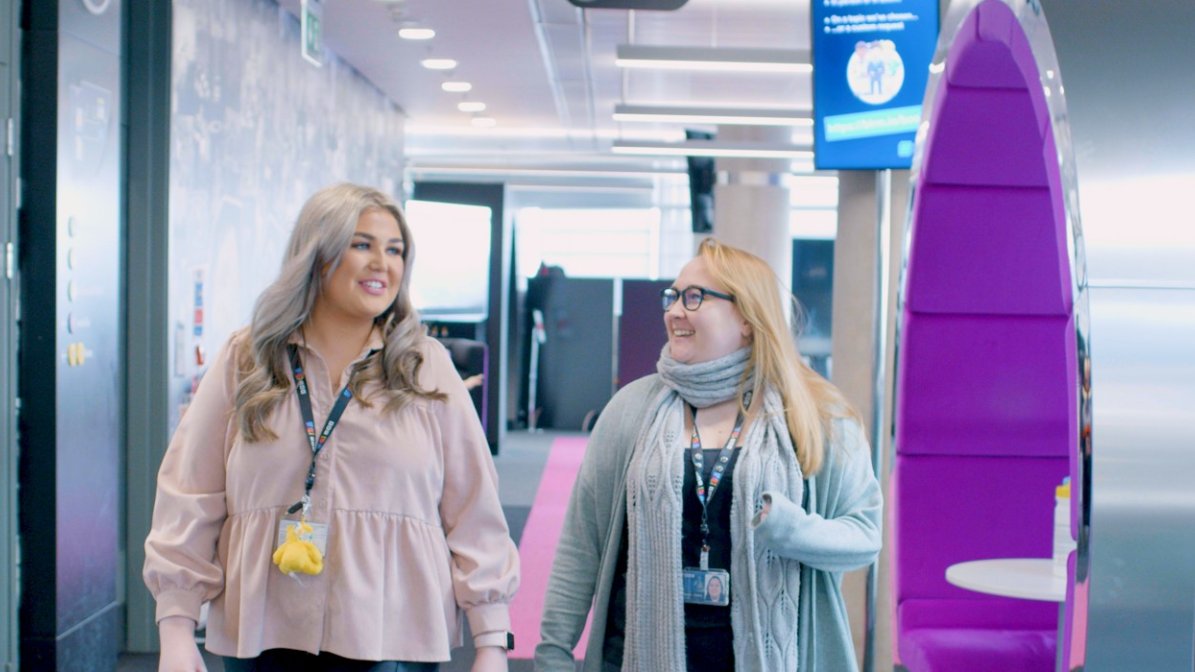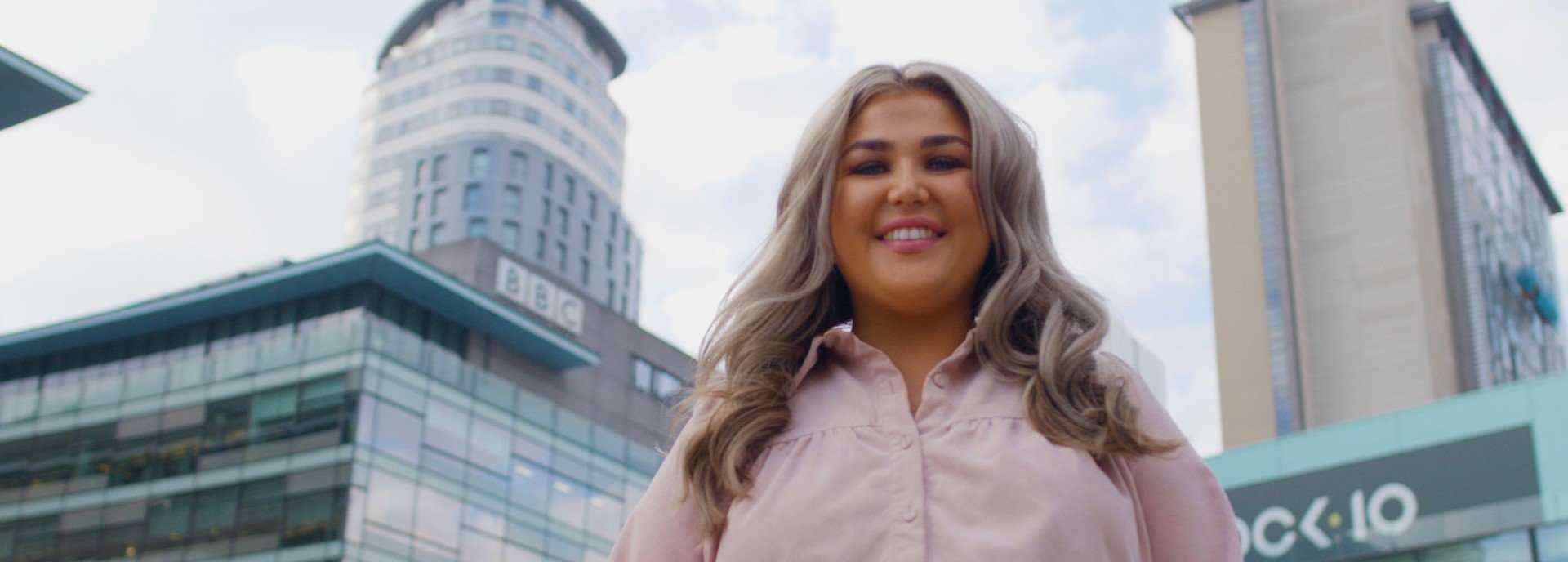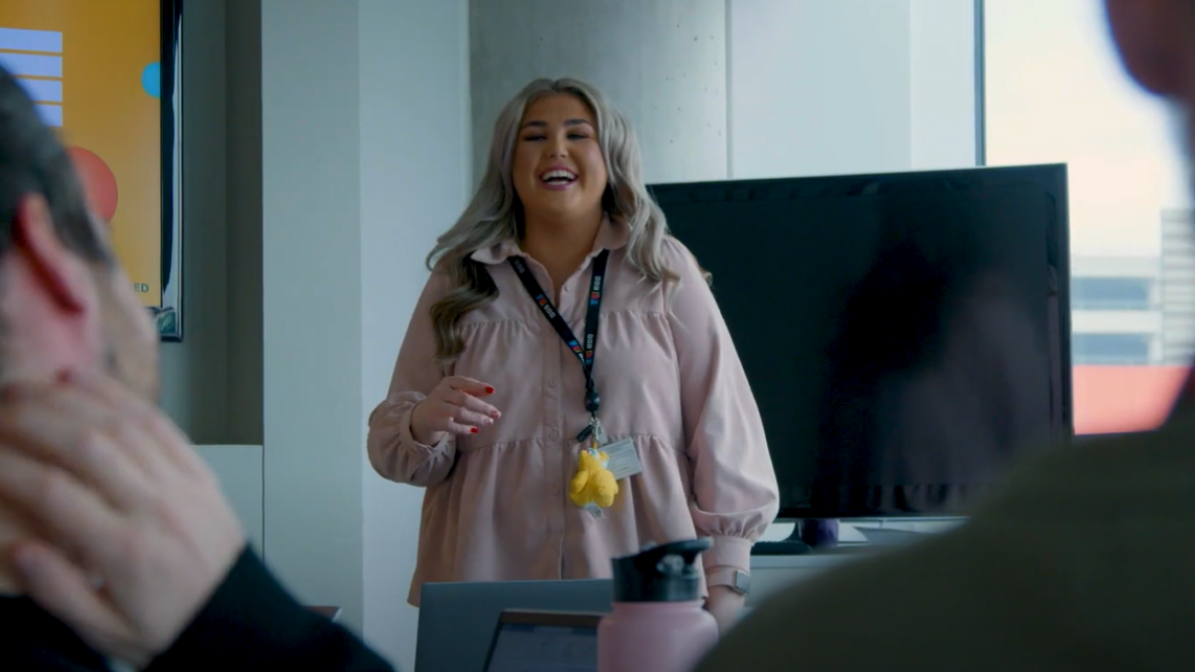A day in the life of a BBC Apprentice
Vicki is a chartered management apprentice working at the BBC.
Vicki is a chartered management apprentice working at the BBC.
“I joined the BBC Apprenticeship Scheme in November 2020, and I was so excited to start. In the past two years, I’ve rotated around the BBC completing four, six-month placements across the business, which has given me a broad knowledge of the organisation. For my 4th placement, I’ve been working at BBC Children in Need which is where I opted to stay for my final (third year) placement.
“I remember vividly taking part in Children in Need Day at school by wearing Pudsey Ears and bringing in a pound. The opportunity to work across the media organisation as an apprentice, whilst also in one of its corporate charities, is everything I wanted to gain from my apprenticeship.
“I have vivid memories of struggling at school, although it was never noticed or addressed. When I was 17, I was diagnosed with Dyslexia. I was in my second year of Sixth Form, and I was failing and running out of time in all my exams regardless of how hard I tried. This had a negative impact on my mental wellbeing, and I was suffering with migraines and daily chronic headaches which led to me being off sick and missing lessons. It really added to the stress and anxiety I felt on a daily basis and knocked my confidence.”
“My A-Level history teacher referred me to the learning support team at school who offered me a speed writing test to see if I could apply for extra time in my exams. That’s when they noticed I was struggling and referred me for a Dyslexia assessment. Once I was diagnosed, I got lots of support to help me get good grades in my A levels. I got extra time and also completed all my exams on a laptop.
“Once I left Sixth Form, I went to work as a radiology support worker at an NHS hospital. When I started the world of work, I faced different professional challenges, which is when I was diagnosed with Autism at the age of 20. I found it challenging because I’d spent my whole life not knowing about my neurodiverse conditions, and I understood very little about them."

“At first, I was in denial as I couldn’t process the negative labels and stigmas attached to dyslexia and autism. When I originally told close friends and work colleagues about being diagnosed with autism, I was constantly trying to validate ‘why’, which was really difficult for me because I wasn’t sure myself. The diagnosis was really beneficial for me because I now knew why I always felt like I didn’t fit in or struggled to cope with daily tasks that others around me could manage.
“I reflected a lot on the previous 20 years, with a new understanding as to why I acted certain ways when my friends didn’t. Although, I still struggled with other people questioning the diagnosis that I wasn’t clear on myself. It made me reluctant to be open with people about the diagnosis because I found it hard to explain.”

“I think it’s so important for those who are happy and willing to speak openly to try and tackle the stigmas attached to all disabilities. They don’t limit your abilities.”
“Shortly after my autism diagnosis, I started working at the BBC. I was asked if I needed any reasonable adjustments. I didn’t know how to respond as I’d never been asked that before. Since getting both diagnoses, I was always very reluctant to tell people in case they thought negatively about my ability. I decided to tell my manager but explained that I didn’t know what support could be available to me as I’d never been asked if I needed adjustments apart from getting extra time in exams.
“My manager contacted the BBC’s access services team to create a personal learning plan and they were able to put reasonable adjustments in place, along with equipment which was funded by the Access to Work scheme. I was given training sessions to help me understand how to use the technology along with some 1:1 support sessions. This has helped me massively and over time, I’ve learnt to become more self-aware with established coping strategies. I’ve benefitted hugely from receiving this support and I’m so grateful to my manager and the BBC.

“I’m now so open and love to share my experience with others in the hope that I can help them be open and honest about any neurodiversity or disability that they may have with their employers. I also support the disabled apprentice network to create reports and help employers understand how they can support their staff.
“My advice to anyone with a disability who would love to apply for an apprenticeship would be to go for it. You can do it and there will always be the support to ensure you achieve what you want to.”